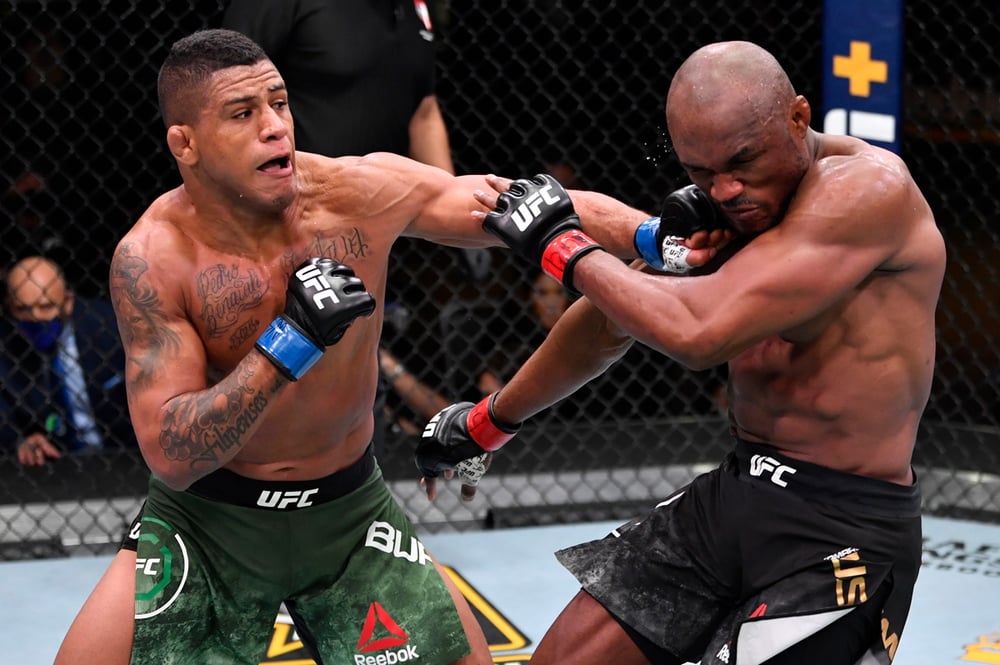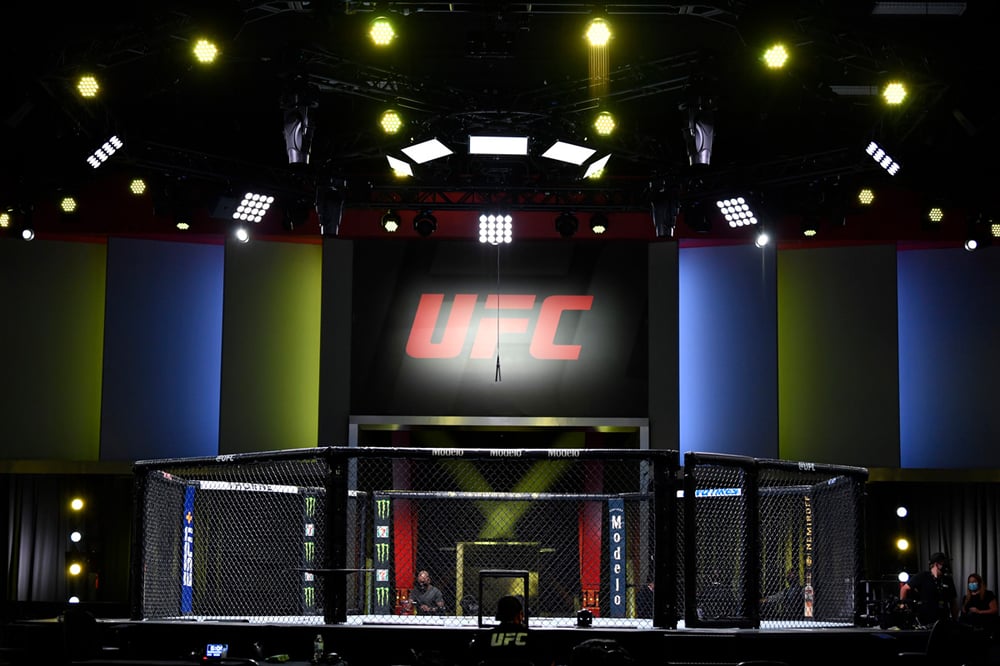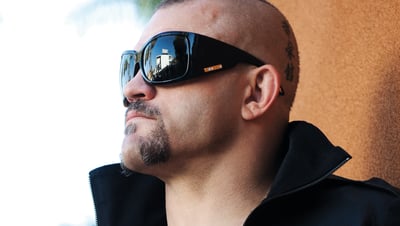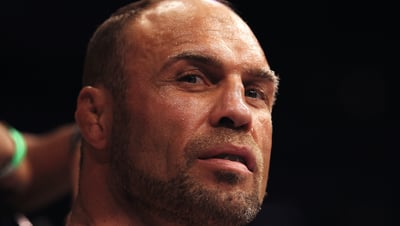
Issue 211
November 2024
Tim Wheaton explores how the UFC Apex renovations will turn it into the modern-day coliseum for future fight legends
Every saga has its scrappy origin story. Rocky had his meat locker. Danielson had Mr. Miyagi’s backyard. And the UFC Apex has its Korakuen Hall. The former holds less than 2,000 orange seats, but patrons can watch spectacles of blood, sweat, and torn ears on any given day in the heart of Tokyo, Japan. There’s a floor-shaking atmosphere so vibrant it’s called the ‘Promised Land’ or ‘Sacred Grounds.’ Combat icons of every creed, like Hulk Hogan, Joe Frazier, and Ken Shamrock, have generously donated their claret to its hallowed canvas. This venue nurtured the first Japanese version of MMA in the form of PANCRASE, which was a style halfway between pro wrestling and MMA. Whether it was boxing, Muay Thai, or grappling, the Korakuen Hall is an old-school mecca of combat sports and possibly the meat locker for what UFC Apex will likely become to the future of MMA.
THE GHOSTS OF APEX PAST
The UFC Apex was the best place during the worst time after opening in June 2019. Shortly afterward, sports were vandalized by COVID-19, but UFC had the brilliant idea to host events with limited capacity. Sure, it hits different compared to regular events, but the UFC turned a stubbed toe into a dance move. Fighters were COVID-tested, limited audience members were allowed, and everyone walked away a winner because they got to compete when nobody else could. This genius served ESPN, bettors, sponsors, fighters, and viewers while all other sports were scuppered. Small in size, it was big in punch. Francis Ngannou won over Stipe Miocic. Kamaru Usman KO’d Gilbert Burns.

It also saw the swan song scraps for legends like DC, Anderson Silva, and Alistair Overeem. With a distinct broadcast style, it was fit for purpose with the red backlighting and corners yelling and golf clapping. While the fighters brought the punches, the silent atmosphere brought the awkward. Fans didn’t want to feel like they were watching an intense library argument, so the Apex was put in the review mirror when the pandemic ceased. The first US show out of blocks was at UFC 261, where Kamaru Usman issued a Mortal Kombat-like fatality against Jorge Masvidal. The 15,000 screaming fans brought the decibels that seemed to seal the Apex’s fate.
THE JOYS OF APEX PRESENT
The UFC never abandoned the Apex. It just hit the road while keeping at least half of the bouts at this venue, which wasn’t to everyone’s taste. Fans would be screaming at fighters one weekend, while a handful of cornermen would yell with no audience participation the next. According to those inside the UFC Apex, the atmosphere inside was electric.
“The Apex is for the fighters and those closest to them,” says cornerman and pro-fighter Kevin Church. “Energy may not be right for you at home on the couch, but it's wild inside the building.”

The Apex is a wallet-friendly stroke of genius for the UFC because it keeps production costs minimal. This year, it was used for events like Power Slap, the UFC Fight Pass Invitational (submission grappling), skateboarding, and an NXT Battleground (pro wrestling) event. The venue can be quickly transformed to accommodate different sports, but its current iteration gives off karaoke night vibes instead of the coliseum of combat. And if the UFC is good at one thing, it’s giving fans what they want.
THE GRANDEUR OF THE APEX FUTURE
In November, UFC Apex began the renovations to the tune of some serious dollars.
“We’re doing a $20 million expansion here,” said Dana White. “We’re gonna invest a lot of money in this place. And we got some pretty big announcements coming up in the next 6 months. So, it’ll all sort of make sense on what we’re doing and why we’re doing it.”
It will soon be able to seat approximately 1,000 patrons, with a gift shop and concession stand. Once the renovation is complete, they will host live concerts and galas at the venue. Rather than being a soulless sound studio, it is slowly transforming into an MMA fan hub that expands all combat sports. Once reopened, it will likely host a Brazilian jiu-jitsu event headed by ‘Darth Rigatoni’ Mikey Musumeci, who is the first submission grappler to sign with the UFC.
“They’re trying to take over jiu-jitsu like they did MMA,” Musumeci explained. “[The UFC’s] goal is to grow the sport exponentially - grappling leagues, everything. I also feel the UFC can bring a lot to grappling.”
The star hopes the UFC can bring some professionalism to the sport.
“It’s finally another platform that can expand our sport to people who wouldn’t typically watch jiu-jitsu. It’s a platform that will eventually have drug testing. A platform that can make our sport professional. Right now, there’s too much with steroids and craziness. I just want a legitimate, professional platform for athletes. We need a legitimate organization, like MLB, NBA, or NFL, where we don’t have to question if they’ll have money a year from now.”
This is a sign of the possible future envisioned for the UFC Apex – a weekly jiu jitsu league where grappling legends, plus up-and-comers, can all compete at the Apex.
MOVING TOWARD GREATNESS
It’s not hard to picture them applying this template to anything with a referee and a timer. Between the Contender Series, Fight Nights, The Ultimate Fighter, and Submission Grappling, the UFC Apex is set to become hallowed grounds for combat sports. Like the Green Monster at Fenway Park, the arch of Wembley Stadium, or the orange seats of Korakuen Hall, the red X of the UFC Apex could become an iconic place where young athletes dream of competing. The Apex may swap gloves for folding chairs, boosting WWE’s TKO-fueled smackdown potential. The parent company Endeavor could be able to host eSports here in addition to music concerts. The UFC Apex has the potential to become a cornerstone of combat sports, much like Korakuen Hall has been for Japan. By embracing its role as a multi-sport venue, the Apex can evolve into a hub for developing talent across all disciplines. Its renovations and expanded programming could be a launching pad for future legends, uniting fans and athletes in a space that breeds growth and reverence. What Korakuen Hall has done for Tokyo, the UFC Apex could do for the world.










